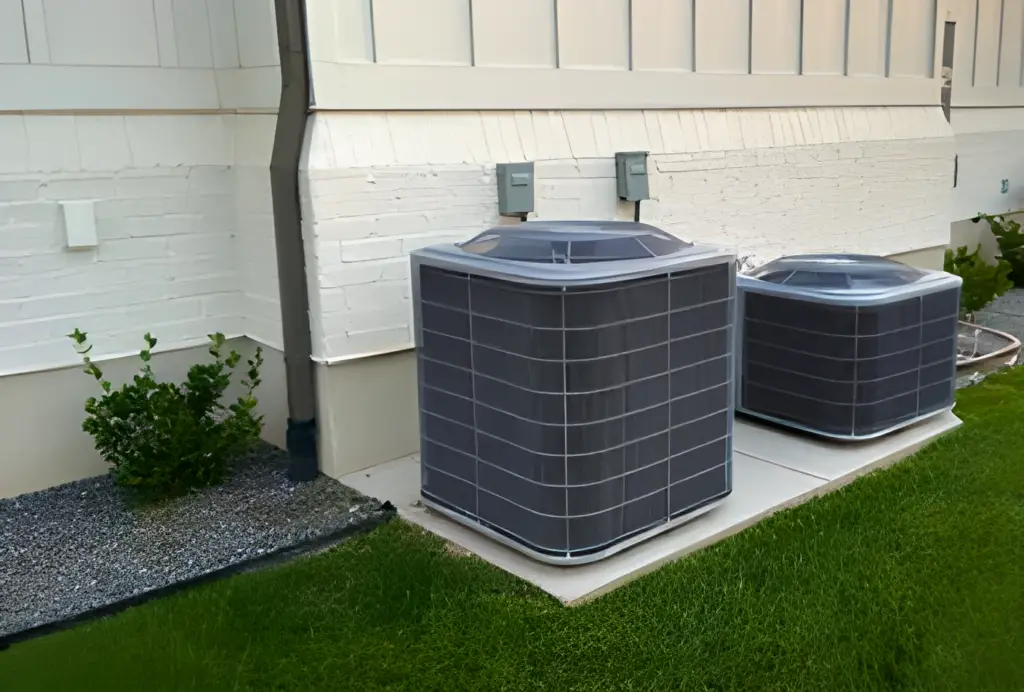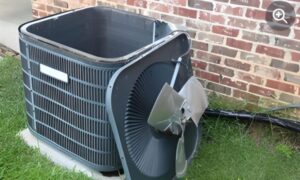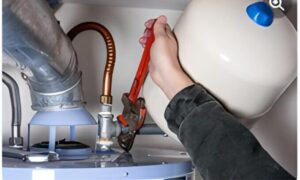If your HVAC system is over 10 years old, has a heating problem, and is driving up your electric bill, you may want to consider either repairing or replacing it. The best option for you depends on several factors, such as the extent of the damage, the cost of repair, and the efficiency of your current system.
If the issue is minor and the cost of repair is low, it may make sense to simply repair the system and continue using it. However, if your system is old and inefficient, it may be more cost-effective in the long run to replace it with a new, more energy-efficient model. This could lower your monthly energy bills and provide better heating.
Table of Contents
HVAC: Repair vs. replacement: which option is right for me?
The decision to repair or replace your HVAC system should be based on several factors, including:
Age of the system: If your HVAC system is over 10 years old and frequently requires repairs, it may be more cost-effective to replace it rather than continually fixing it.
The extent of the damage: If the problem with your HVAC system is minor and can be easily fixed, a repair may be a good option. However, if the damage is extensive and the cost of repair is high, replacement may be a more cost-effective solution.
Energy efficiency: An older HVAC system may not be as energy efficient as a newer model, resulting in higher energy bills. If your HVAC system is inefficient, replacement with a more energy-efficient model can lower your monthly energy bills.
Cost: The cost of repair versus replacement is a major consideration. If the cost of repair is low, it may make sense to fix the system. However, if the cost of replacement is not much higher, it may be a better long-term solution.
When should you repair or replace your HVAC?
The cost of HVAC maintenance varies depending on several factors, including the type of system you have, the size of your home, and the complexity of the maintenance required. On average, a routine HVAC maintenance check can cost anywhere from $75 to $200. However, the cost can be higher or lower depending on your specific needs.
It’s important to note that regular HVAC maintenance can help extend the life of your system, prevent costly breakdowns, and improve its overall efficiency, which can save you money in the long run.
It’s recommended to have a professional perform an HVAC maintenance check at least once a year, preferably before the start of the heating or cooling season. This way, you can ensure that your system is in good working condition and ready to provide you with efficient heating and cooling all year round.
How much does it cost for HVAC maintenance?
The cost of HVAC replacement can vary greatly depending on several factors, including the type of system you have, the size of your home, and the complexity of the installation. On average, the cost of a new HVAC system can range from $4,000 to $12,000 or more, including labor and materials.
The most common types of HVAC systems are central air conditioning and heating systems, and the cost of replacement will depend on the specific model and brand you choose. High-end systems with advanced features can be more expensive, while more basic systems can be less costly.
It’s important to get several quotes from licensed HVAC contractors to compare the costs and ensure you are getting a fair price. It’s also recommended to choose an HVAC system that is energy-efficient, as it can help you save money on your energy bills in the long run.
How much does it cost for HVAC replacement?
The cost of HVAC replacement can vary greatly depending on several factors, including the type of system you have, the size of your home, and the complexity of the installation. On average, the cost of a new HVAC system can range from $4,000 to $12,000 or more, including labor and materials.
The most common types of HVAC systems are central air conditioning and heating systems, and the cost of replacement will depend on the specific model and brand you choose. High-end systems with advanced features can be more expensive, while more basic systems can be less costly.
It’s important to get several quotes from licensed HVAC contractors to compare the costs and ensure you are getting a fair price. It’s also recommended to choose an HVAC system that is energy-efficient, as it can help you save money on your energy bills in the long run.
What are the benefits of a new HVAC system?
When comparing an old HVAC system to a new one, there are several key features to consider to ensure that you are getting the best value for your money:
Energy Efficiency: Look for a system with a high Seasonal Energy Efficiency Ratio (SEER) or Annual Fuel Utilization Efficiency (AFUE) rating. This will help you save money on your energy bills by using less energy to heat or cool your home.
Capacity: Make sure that the system you choose has the appropriate capacity for your home. An HVAC system that is too small will struggle to heat or cool your home, while an oversized system will consume more energy than necessary.
Noise Level: Consider the noise level of the system. A quiet system is especially important if you have bedrooms near the HVAC unit.
Advanced Features: Look for systems that offer advanced features such as programmable thermostats, air filtration systems, and zoning capabilities, which can improve the comfort of your home and make it easier to control the temperature.
Warranty: Consider the length and terms of the warranty offered by the manufacturer. A long warranty can provide peace of mind and protect your investment in the event of any problems with your HVAC system.
Brand & Customer Reviews: Choose a well-respected brand with a good track record for reliability and customer service.
How do I Find a Quality HVAC Service provider?
Finding a quality HVAC service provider can be a challenge, but here are some steps you can follow to ensure you choose a reliable and trustworthy company:
Research: Ask for recommendations from friends and family, or search for HVAC contractors online. Read reviews from previous customers to get an idea of the quality of work provided by the company.
Check Credentials: Make sure the HVAC contractor is licensed, insured, and has all the necessary certifications.
Get Quotes: Contact several HVAC contractors to get quotes for the work you need to be done. Compare the prices and services offered by each contractor to find the best value.
Ask Questions: When meeting with potential HVAC contractors, ask them about their experience, the types of systems they install, and the services they offer. Find out if they offer warranties and if they have any references.
Consider Availability: Consider the availability of the HVAC contractor. A reliable company will be able to respond to your needs in a timely manner and have the resources to handle any emergencies.
Verify Experience: Make sure the HVAC contractor has experience with the type of system you have and the specific problem you need to be fixed. Ask to see examples of their work or ask for references.
By following these steps, you can find a quality HVAC service provider who can help you keep your HVAC system in good working order and ensure that you are comfortable in your home all year round.







